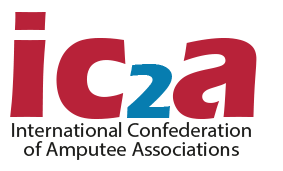OneHand project
IC2A participated in a project funded by the European Commission that was completed in March 2024 and led by The Simulation Crew (TSC) and in collaboration with partners Ottobock (Austria) and University of Groningen, Netherlands (UMCG).
The project’s purpose was to create an improved and user centred solution for upper limb prosthetic users.
IC2A’s main roles in this project was to:
- Develop standard guidelines for upper limb patient recovery and rehabilitation in order to ensure best practices and an improved patient journey.
- Be the “voice of the user” in the project to ensure that any new processes resulting from the project will benefit the users.
The following version 1 documents can now be shared with the wider public for rehabilitation personnel as well as for people with upper limb loss and their family and care givers to utilise.
List of publications from the team at UMCG regarding their OneHand project input:
Maas, B., Tchimino, J., Dijk, B. van, Murgia, A., Sluis, C. K. van der & Bongers, R. M. (2025). Skill transfer of upper limb prosthesis control after training in a virtual reality environment. Technology and Disability. doi.org/10.1177/10554181241311685
Rozevink, S. G., Maas, B., Murgia, A., Bongers, R. M. & Sluis, C. K. van der. (2025). Therapists’ and prosthesis users’ assessments of a virtual reality environment designed for upper limb prosthesis control training. Journal of Hand Therapy. doi.org/10.1016/j.jht.2025.01.004
Tchimino, J., Maas, B., Dijk, B. van, Murgia, A., Sluis, C. K. van der & Bongers, R. M. (2025). Effects of game design characteristics of a virtual reality serious game for upper-limb prosthesis control training on motor learning. Frontiers in Rehabilitation Sciences, 6, 1520184. doi.org/10.3389/fresc.2025.1520184
IC2A thanks everyone who was involved with this project.
